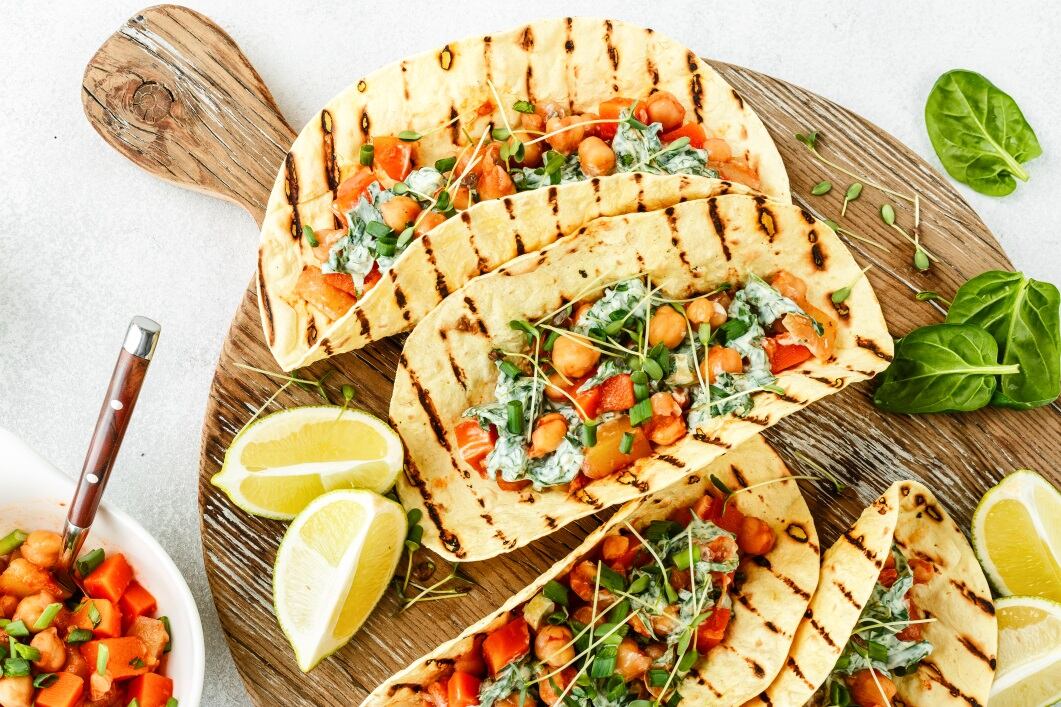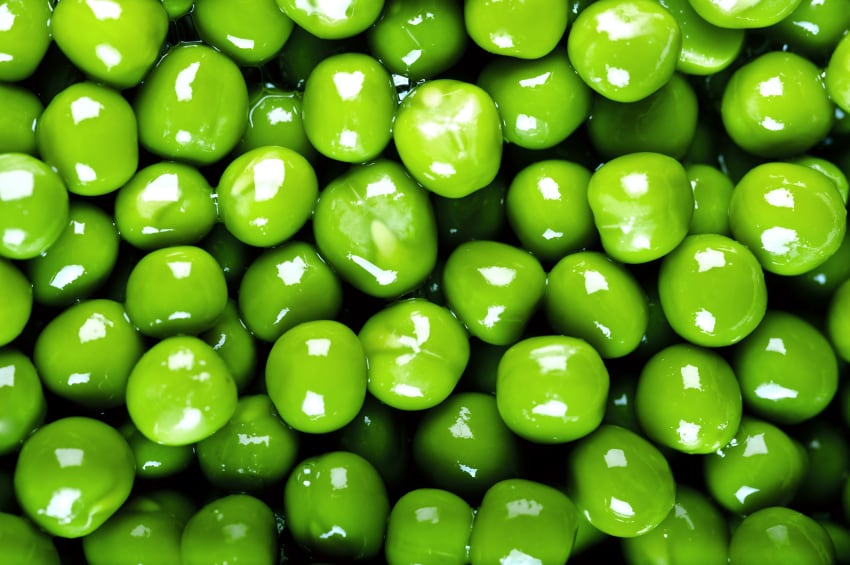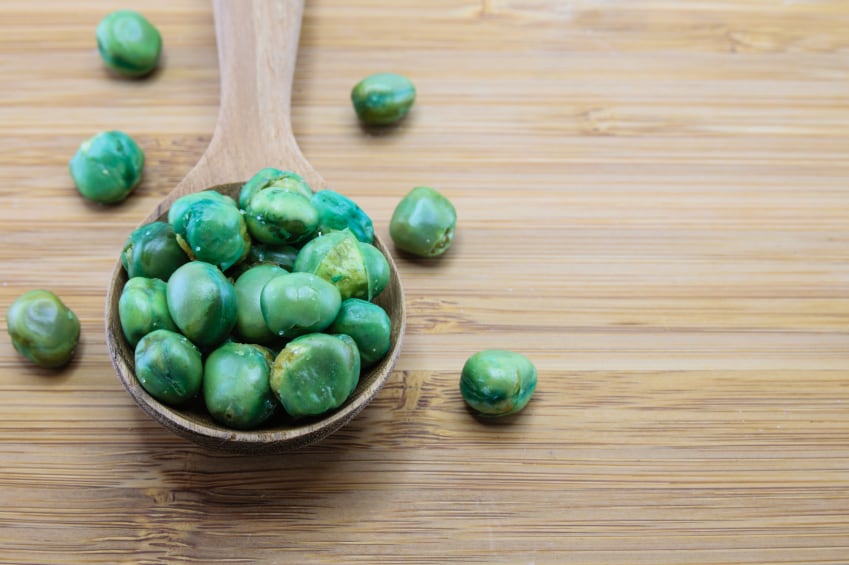The meat substitute market is expected to reach a global value of $7.5bn by 2025, with a compound annual growth rate forecast at 7.7%, according to Allied Market Research.
Benjamin Voiry, Roquette global market manager for savoury ingredients, believes increased consumer acceptance reflects both evolving attitudes to the category and improved product performance.
“Products are evolving, consumer behaviour is evolving and the brand is evolving with new companies coming on the market,” he told FoodNavigator.
When the category was still in its infancy, purchase of meat analogues was driven by price considerations, Voiry observed. Today, consumers are turning away from meat products because of concerns over animal welfare, sustainability, health and value. They are turning towards meat analogues as a viable alternative thanks to the technical advances that have fuelled the development of a more meat-like finished product.
Voiry characterised this progress as three stages of development: the first iteration of plant-based products - consisting of items like tofu, seitan and tempeh - that offered a high protein content; the second phase of development saw veggie items mimic the format of meat; and the emerging third generation consists of meat analogues that offer a high protein content while presenting consumers with the visual and organoleptic properties of meat.
While innovation and technical developments have boosted the sector, product developers must continue to push the envelope on plant-based innovation to ensure further acceptance by mainstream consumers. “We must look to the future,” Voiry said.
Protein diversification
Roquette believes further development will be supported by the introduction of new plant-based protein sources in the coming years.

Currently, soy and wheat account for a significant share of the meat analogue market. While Roquette works with several sources of plant based protein – including wheat, potato and corn - the French ingredient maker has focused much of its innovation investment on developing texturised pea proteins and the group is ploughing €0.5bn into ramping up production in Europe and Canada.
Pea proteins, Voiry explained, have a number of advantages, such as being non-GMO and non-allergenic. Roquette has seen growing industry interest in these alternative plant-protein sources, he observed.
The company plans to continue to invest in its pea protein portfolio with the development of different sizes of texturised pea protein suitable for different applications. But in addition to this, Roquette will launch a new protein source – texturised fava bean protein – in 2020.
Speaking to FoodNavigator ahead of this week’s The Future of Plant Based Protein conference, organised by our sister publication Global Meat News, Voiry said that he believes bringing new plant-based protein sources to the market will stimulate innovation and help meet shifting consumer expectations.
“We plan to launch a textured fava bean ingredient in 2020. This means new possibilities for the meat analogue market in terms of novelty and, thanks to this new source of plant based protein, diversity in terms of sensory and nutritional profile. This is a new protein that can animate and build more interest in this market.
“It is a first step in extending our offer along with textured pea protein. Here we add one more proposition that can give a lot of possibilities for innovation.”
Taste, texture and nutrition
Expanding the protein sources available allows finished brands to “diversify their product mix” with “a high performing solution”, Voiry suggested.
The “unique process of texturation” allows Roquette to provide fava bean protein with “fibrous effect”. This allows innovation teams to think beyond the burger and look to additional SKUs, such as meat-free sausages, patties or chicken nuggets. It gives “bite” to products with “a bit of firmness”, Voiry explained.
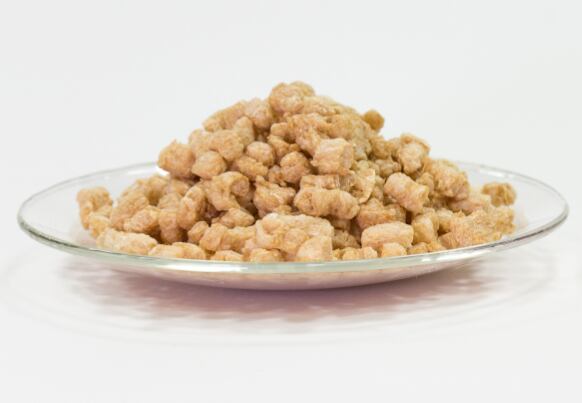
When it comes to flavour profile, he suggested fava’s performance is “equivalent to pea” and is “impressive in terms of taste profile”. While it may have a “small legume taste”, Voiry said this “fits very well with savoury applications” and is “quite neutral”, meaning that it may not require masking.
This has important implications for the clean label profile of meat analogue products and Voiry acknowledged that today’s meat analogues are somewhat out of step with consumer interest in shorter ingredient lists.
“There are lots of opportunities to achieve [cleaner ingredient lists] at the development phase. This is definitely something that we take into account. In this type of finished product, we are providing the main ingredient – the protein source. But it has some functionalities that mean you don’t need to add additional ingredients.
“The formulation will evolve with less ingredients, that is for sure… A long ingredient list is a fact as of today. But it is an opportunity for some companies to differentiate with less ingredients.”
The protein content of fava is “very high” and it offers a “balanced amino acid profile”, Voiry revealed. “Amino acids are pretty similar, pretty close to pea. That means it is a good quality protein.”
In terms of formulation, Voiry acknowledged that some meat analogue products are beginning to feel a push-back from consumers who are concerned over high levels of added fat and salt. “Not all formulas are unbalanced in terms of salt or fat profile. You have to see the whole formula. I would say fava bean texture does not bring fat or sodium. It is more on the other side of the formulation that you have to take care and make sure your nutritional profile is one that can be accepted by consumers,” he noted.
Local and sustainable sourcing
There is also an important sustainability message behind diversifying the plant protein crops under cultivation.
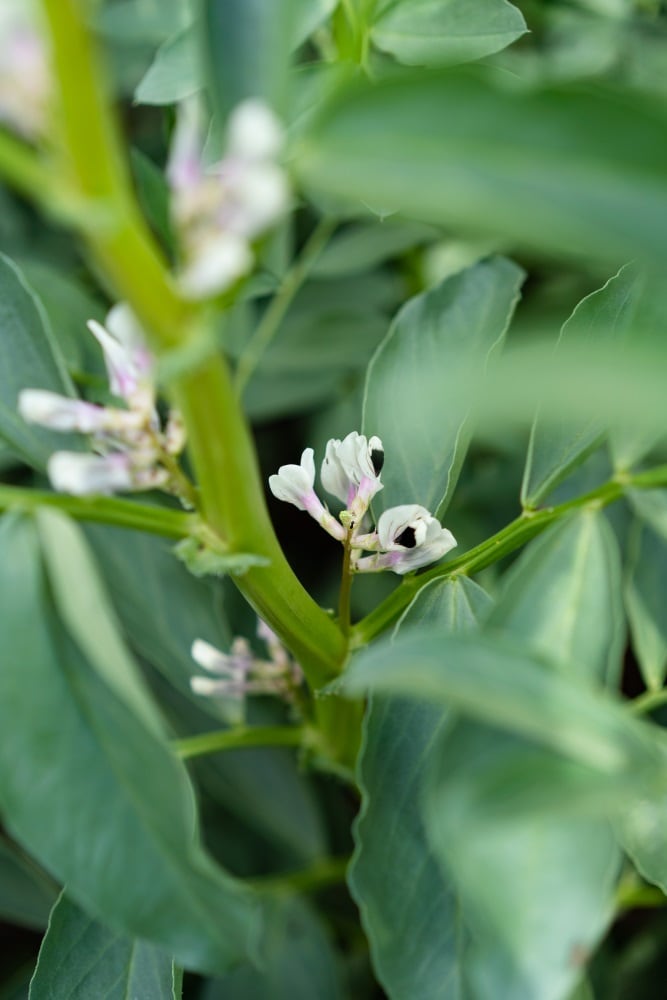
Fava beans and peas are grown locally in Europe. Their utilisation as an ingredient allows the farmers who supply Roquette to increase crop rotation, bringing benefits in terms of biodiversity and soil health. Legumes are also known to help ‘fix’ nitrogen in the soil.
Given that sustainability concerns are a major driver of the overall category, this is an important point of differentiation for both pea and fava.
“Sustainability is something that is more and more important. It is important for farmers and the industry but it is also something that brands are highlighting more and consumers are taking seriously.
“Sustainability is a reality for consumers. We can see that through the products they consume. Globally, the advantage of meat alternatives is that they carry a lot of benefits related to sustainability, animal welfare and health. Pea and now fava are going even deeper.”
Initially, Roquette's fava bean product will be rolled out in the European market. It will be made from fava beans sourced locally and processed at the textured protein plant Roquette recently acquired in the Netherlands.
Roquette has high hopes for fava’s appeal. “Fava bean protein brings a lot of things to the market. It is a new variety, a new source of protein, we are bringing it to the market in a dry textured format and it can be used in the future generation of plant-based options.
“It has positive characteristics like sustainability, local origin and non-GMO that we know are important to consumers.
“Brands will be able to promote a protein that is from Europe, allows consumers to get a new taste profile (slightly different but totally acceptable) while maintaining the textural profile.
“Thinking about the future, we believe in a variety of protein sources. Fava bean as a new protein is important. Not all protein will work – but this one is very interesting.”

